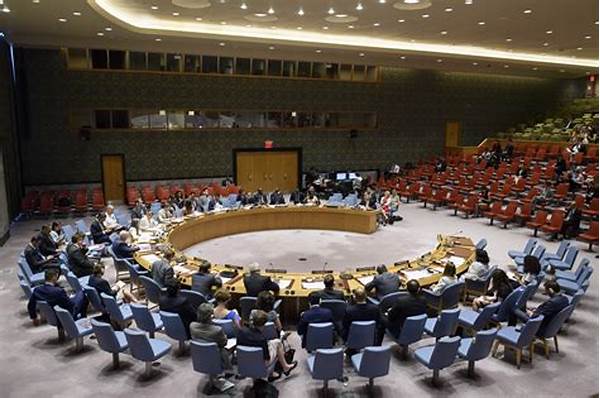In the contemporary global landscape, peacebuilding and security partnerships have emerged as fundamental components for fostering stability and prosperity. With the continuously evolving nature of international relations, it becomes imperative to understand the roles these partnerships play in mitigating conflicts and building sustainable peace. This article will shed light on various facets of peacebuilding and security partnerships and examine their significance in today’s world.
The Importance of Peacebuilding and Security Partnerships
Peacebuilding and security partnerships are vital instruments in ensuring durable peace and stability. They encompass a range of cooperative efforts aimed at preventing the outbreak and escalation of conflicts. Through collaboration between states, international organizations, and non-governmental entities, these partnerships address the root causes of instability and provide platforms for dialogue and reconciliation. The importance of such partnerships cannot be overstated, as they contribute substantially to the reconstruction of war-torn societies and create an environment conducive to sustainable development.
Moreover, peacebuilding and security partnerships facilitate the pooling of resources and expertise necessary to tackle complex security challenges. They enable a coordinated approach to conflict resolution, allowing stakeholders to share best practices and lessons learned from past experiences. By strengthening relationships between diverse actors, these partnerships contribute to fostering trust and mutual understanding, which are essential for long-term peacebuilding efforts. It is through these concerted efforts that the global community can aspire to achieve peace and security for all.
The dynamics of contemporary conflicts necessitate innovative approaches to peacebuilding and security partnerships. As threats transcend borders and become increasingly interconnected, traditional methods of conflict prevention and resolution require reevaluation. Effective partnerships must be adaptable, inclusive, and responsive to the needs of affected communities. By engaging local actors and facilitating their active participation, these partnerships can generate more effective and sustainable solutions to the complex challenges of peace and security.
Strategies for Effective Peacebuilding and Security Partnerships
1. Engagement with Local Communities: Successful peacebuilding and security partnerships hinge on local ownership. By incorporating the perspectives and needs of local communities, partnerships become more relevant and sustainable.
2. Inclusive Dialogue: Encouraging diverse stakeholders to participate in dialogue enhances the legitimacy and effectiveness of peacebuilding efforts. These partnerships must bridge divides between conflicting parties and foster mutual understanding.
3. Resource Sharing: Effective partnerships involve the sharing of resources, including financial, human, and technical expertise, to bolster capabilities in addressing security challenges and promoting peacebuilding initiatives.
4. Capacity Building: Enhancing the capacities of local institutions remains a cornerstone of sustainable peace. Peacebuilding and security partnerships should focus on strengthening governance and rule of law.
5. Adaptability: Flexibility and adaptability are crucial for addressing the evolving nature of conflicts. Partnerships must continuously reassess their strategies and adapt to new challenges and opportunities.
Challenges and Opportunities in Peacebuilding and Security Partnerships
The ever-changing global landscape presents both challenges and opportunities for peacebuilding and security partnerships. On the one hand, the complexity of modern conflicts demands comprehensive, multifaceted approaches that can be challenging to coordinate. Differing political interests, cultural contexts, and resources can sometimes hinder effective collaboration between partners. Moreover, emerging threats, such as cyber warfare and transnational terrorism, necessitate innovative and timely responses to ensure the efficacy of these partnerships.
On the other hand, advancements in technology and communication offer unprecedented opportunities for enhancing peacebuilding and security efforts. Increased connectivity allows for more effective information sharing and coordination between partners, facilitating quicker and more informed decision-making processes. By leveraging technology, peacebuilding and security partnerships can better anticipate potential risks and develop preemptive strategies to address them. Harnessing these opportunities requires a commitment to innovation and the forging of partnerships that prioritize adaptability and inclusivity.
The Role of International Organizations
International organizations play a pivotal role in fostering peacebuilding and security partnerships. Organizations such as the United Nations, the African Union, and the European Union frequently act as conveners and facilitators, enabling dialogue between conflicting parties and supporting the implementation of peace agreements. Additionally, these organizations can provide crucial resources and technical support that enhance the capacity of local actors engaged in peace processes.
International organizations also serve as platforms for the exchange of knowledge and experiences. By sharing best practices and lessons learned, they can guide the development of more effective peacebuilding and security strategies. Furthermore, these organizations advocate for collaborative approaches that align with international norms and standards, thus reinforcing the legitimacy and sustainability of peacebuilding efforts.
Building Sustainable Peace
The aspiration to build sustainable peace underpins the essence of peacebuilding and security partnerships. Sustainable peace transcends the mere cessation of hostilities; it encompasses comprehensive efforts to address the underlying causes of conflict and establish conditions conducive to development and prosperity. Effective partnerships are essential in mobilizing the necessary resources and actors to achieve these ambitious goals.
Achieving sustainable peace requires a long-term commitment from all stakeholders involved. Continuous engagement and support from the international community, coupled with the active participation of local actors, lay the foundation for lasting stability. Peacebuilding and security partnerships must prioritize inclusivity, resilience, and adaptability to nurture environments where peace can flourish.
The Future of Peacebuilding and Security Partnerships
As we look to the future, the evolution of peacebuilding and security partnerships will hinge upon their responsiveness to emerging challenges. Climate change, resource scarcity, and global pandemics are among the issues that will increasingly intersect with security dynamics. Partnerships that can effectively integrate responses to these cross-cutting challenges stand the best chance of succeeding in their peacebuilding endeavors.
The future of peacebuilding and security partnerships will also be shaped by an increased emphasis on local ownership and empowerment. By amplifying the voices and capacities of communities directly affected by conflict, these partnerships can develop more contextually relevant and impactful solutions. By fostering environments where peacebuilding efforts are not only sustained but thrive, we can ensure a more resilient and peaceful world for generations to come.
In summary, peacebuilding and security partnerships are indispensable tools for navigating the complexities of contemporary conflicts. They offer a framework for dialogue, cooperation, and mutual understanding that is essential to achieving enduring peace and stability. Through continued commitment and adaptation, these partnerships can evolve to meet the challenges of tomorrow and pave the way for a future defined by peace and security.





